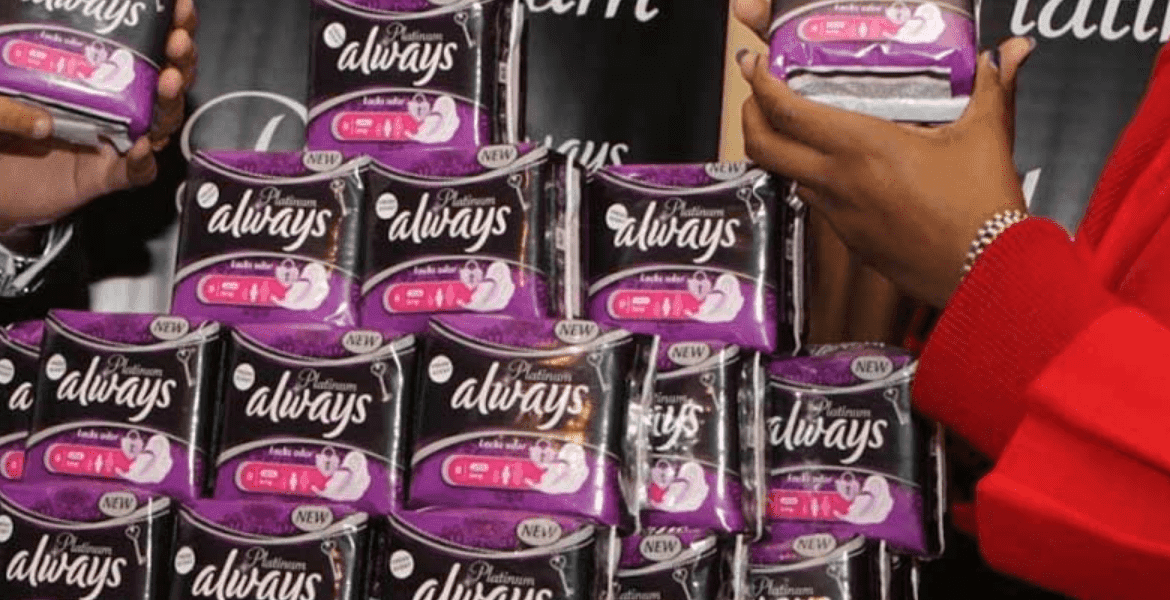We're loading the full news article for you. This includes the article content, images, author information, and related articles.
A landmark class-action lawsuit filed in the High Court alleges global giants sold synthetic-based sanitary products as cotton, violating consumer rights and costing the Kenyan economy billions.

NAIROBI, KENYA – A group of over 2,800 Kenyan consumers has initiated a significant legal battle against two of the world's largest consumer goods manufacturers, Procter & Gamble (P&G) and Kimberly-Clark. A petition filed at the High Court in Nairobi accuses the companies of misleading advertising and product mislabeling on some of their most popular sanitary and baby care products, including Always pads, Pampers diapers, Kotex tampons, and Huggies diapers. The hearing is scheduled for Monday, March 24, 2025, EAT, before the Constitutional and Human Rights Division.
The core of the lawsuit, fronted by legal representatives Joseph Mwai, Ekuru Aukot, and Okello Kiume Advocates, is the allegation that the companies market and label these products as being made of “100% Cotton,” “Pure Cotton,” or having a “soft like cotton” feel, when they allegedly contain petroleum-based synthetic materials like polypropylene and polyethylene. The petitioners argue this practice constitutes a deceptive representation and a violation of consumer rights guaranteed under the Kenyan Constitution and statutory law.
The lawsuit is anchored on Article 46 of the Constitution of Kenya, which grants consumers the right to goods of reasonable quality and the right to information necessary to benefit fully from them. It also invokes Section 12 of the Consumer Protection Act of 2012, which explicitly prohibits false, misleading, or deceptive representations about a product's quality, composition, or benefits. The petitioners contend that by not disclosing the full composition of the products, the manufacturers deny Kenyans the ability to make informed choices, particularly for products used on sensitive parts of the body for prolonged periods.
The petitioners are seeking an immediate court order to suspend the sale and advertisement of the specified products pending the case's conclusion. They are also demanding that the companies be compelled to correct their product labels to reflect the complete and accurate list of materials used. The Law Society of Kenya (LSK) has been officially listed as an interested party in the case, underscoring its national significance for consumer rights advocacy.
Beyond consumer rights, the petition raises substantial economic and public health concerns. The lawsuit alleges that Kenya loses over Sh60 billion annually through the importation of these petroleum-based products. It further claims that substituting these imports with locally manufactured, cotton-based alternatives could generate an estimated Sh100 billion in annual revenue for the local economy. These specific figures, provided by the petitioners, await independent verification. FURTHER INVESTIGATION REQUIRED.
This argument taps into the broader national conversation about reviving Kenya's domestic cotton and textile industry. Reports from the Kenya Institute for Public Policy Research and Analysis (KIPPRA) and the government indicate that the cotton-textile value chain holds immense potential for job creation and economic growth, though it currently operates far below its capacity. Kenya remains a net importer of cotton and textiles, despite having favorable conditions for cotton farming. The lawsuit suggests that a shift in consumer product manufacturing could provide a significant boost to local farmers and the manufacturing sector.
On the health front, the petitioners have raised concerns about the potential risks associated with prolonged exposure to synthetic materials, alleging that some components could be linked to skin irritation and other health issues. The lawsuit argues that the “continued sale and use of toxic sanitary and infant products jeopardize millions of women and children.”
As of Friday, October 25, 2025, EAT, neither Procter & Gamble nor Kimberly-Clark had issued a specific public statement in Kenya responding directly to the allegations in this High Court petition. DETAILS UNCONFIRMED. However, in response to similar lawsuits in other jurisdictions concerning product labeling and safety, the companies have consistently maintained that their products are safe and that they are committed to upholding high-quality standards and complying with all local regulations. In a preliminary objection filed in the Kenyan court, P&G's legal representatives argued that information on their products has always been clear and compliant with the Consumer Protection Act.
The case in Nairobi reflects a global trend of increased scrutiny on consumer product giants over labeling transparency. Both P&G and Kimberly-Clark have faced class-action lawsuits in the United States and regulatory challenges in other countries over claims such as “natural” or “flushable” on various products. This Kenyan lawsuit is a significant development, marking one of the largest and most direct challenges of its kind in the East African region. The outcome of the hearing on March 24, 2025, will be closely watched as a potential precedent for corporate accountability and consumer protection standards in Kenya and beyond.
Keep the conversation in one place—threads here stay linked to the story and in the forums.
Sign in to start a discussion
Start a conversation about this story and keep it linked here.
Other hot threads
E-sports and Gaming Community in Kenya
Active 9 months ago
The Role of Technology in Modern Agriculture (AgriTech)
Active 9 months ago
Popular Recreational Activities Across Counties
Active 9 months ago
Investing in Youth Sports Development Programs
Active 9 months ago